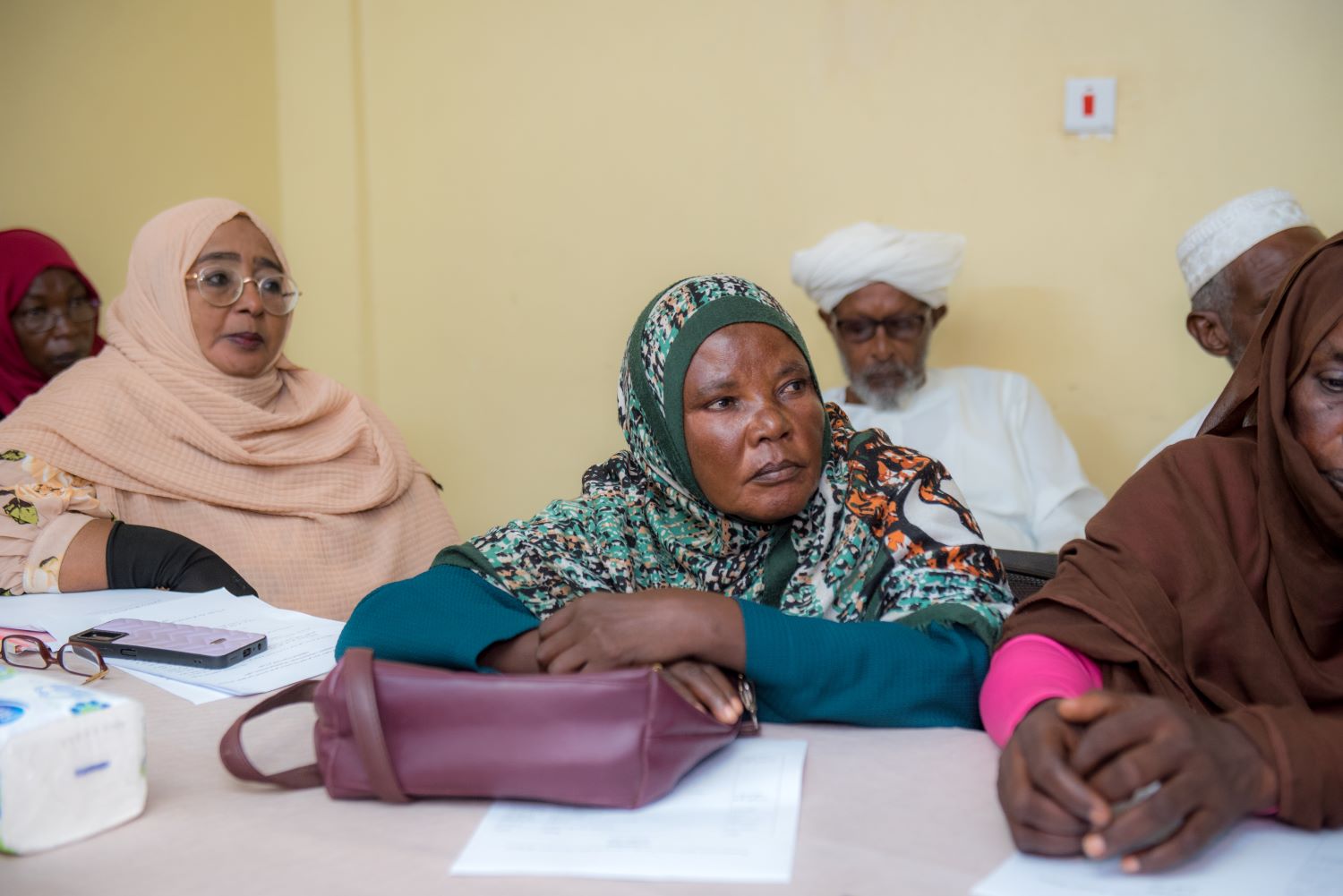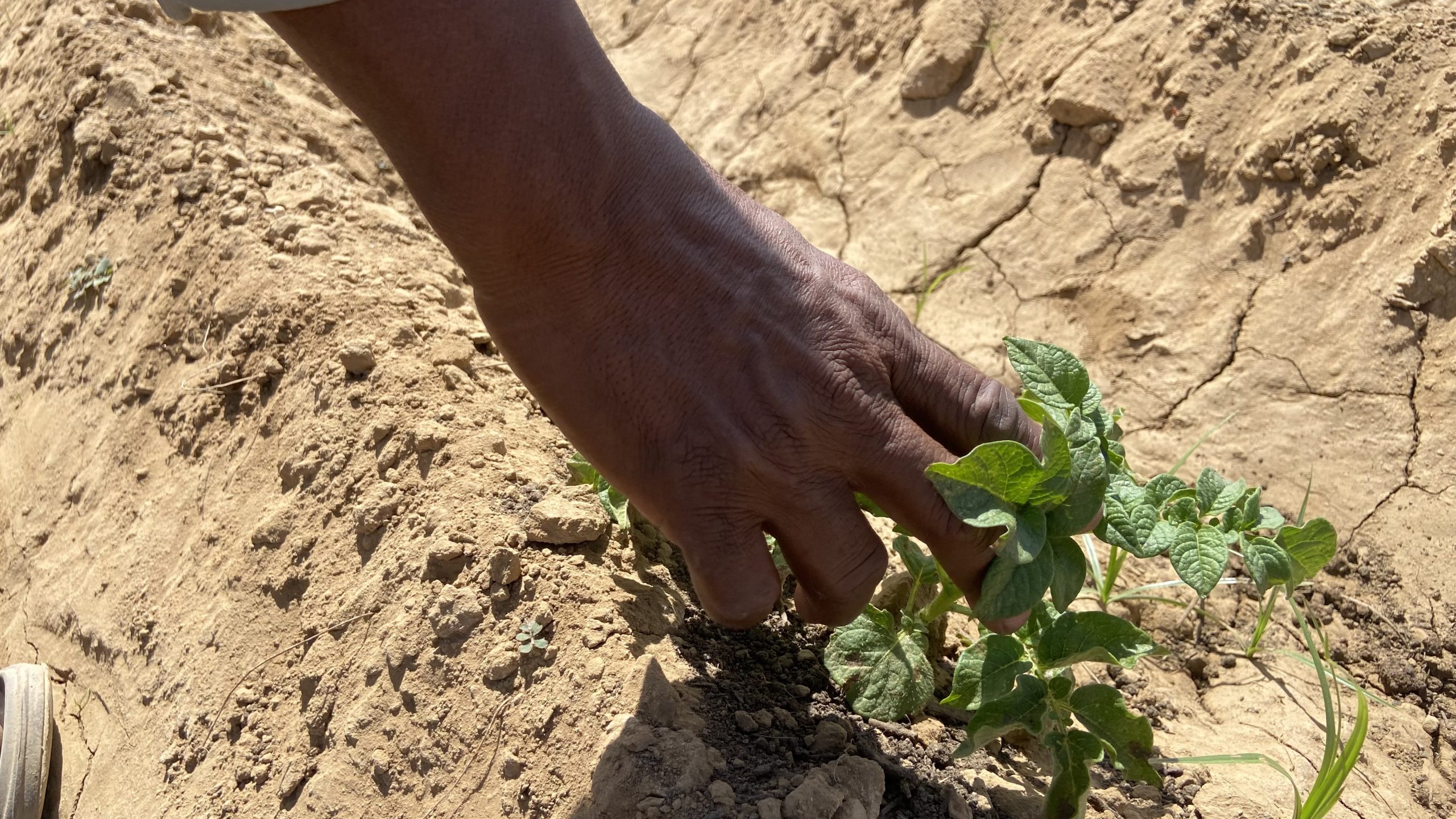Introduction
CIMMYT, through the USAID-funded Sustainable Agrifood Systems Approach for Sudan (SASAS) program, empowers farmers and herders to reduce their reliance on humanitarian assistance, even in conflict-affected Sudan, where over 10 million people have been displaced and livelihoods across the country have been severely impacted. Improving agricultural value chains and agribusiness development is one of the five broad intervention areas of the SASAS program.
Several SASAS program partners support agribusiness development by working directly with micro-, small-, and medium-sized enterprises (MSMEs), which act as intermediaries between large firms and smallholder farmers, facilitating farmers’ access to inputs and promoting national food security. The critical role and challenges faced by agricultural MSMEs have been exacerbated by the ongoing civil war in Sudan. Due to pre-existing gender norms, the impact may differ between women and men entrepreneurs. SASAS implementing partners urgently need up-to-date, ground-level insights into the key business challenges. This includes understanding which businesses are existing and why, identifying promising and actionable coping strategies adopted by agrifood entrepreneurs, and capturing MSME owners’ perspectives on the priority interventions needed to support them.
To provide SASAS partners with critical evidence to inform their development activities with agricultural MSMEs, a team of CIMMYT researchers conducted semi-structured interviews in May 2024 with 20 women and 20 men agrifood enterprise owners residing in Kassala and Gadarif states. The findings from this research were documented in reports. The next phase of the CIMMYT team’s participatory action research focused on holding results dissemination meetings in each of the two states. The purpose of these meetings was to share study findings with research participants and SASAS partners, Mercy Corps and Practical Action, and provide an opportunity for feedback. This feedback helps clarify and validate the study findings and is central to the CIMMYT team’s approach to generating nuanced, contextually based lessons that inform the programming of SASAS partners working with agribusinesses.
Attendance at results dissemination meetings and perceptions of participants
The results dissemination meetings brought together SASAS development partners and MSME owners (research participants). In Kassala, 20 agrifood entrepreneurs (10 women and 10 men), along with several representatives from the Ministry of Agriculture (MoA), the Humanitarian Aid Commission (HAC), and local Kassala communities, attended the meeting. CIMMYT’s partner, Practical Action, co-organized the session. In Gadarif, 13 agrifood entrepreneurs (10 women and 3 men) were joined by representatives from the MoA and local community leaders for the results dissemination meeting, hosted by CIMMYT’s partner Mercy Corps. Participants in both states engaged actively in open discussions about the research findings, offering valuable feedback, while also helping to validate and refine the results.

After introductions and an icebreaker, the results dissemination meetings turned into a brief presentation of key study findings facilitated by CIMMYT’s MEL consultant, Mudar Ahmed. Participants in both meetings listened intently, and their initial feedback conveyed the relevance of the study results to their lives. For instance, when asked about the applicability of the study findings, one participant in Kassala said, “The research on the impact of war on women and men agrifood entrepreneurs is valuable as it gathers various perspectives on how war has affected our work, outlines the challenges we face, identifies coping mechanisms, and offers suggestions to overcome the current bottleneck.”
Social norms influencing women’s and men’s participation in the agrifood sector
One of the factors influencing CIMMYT’s selection of Gadarif and Kassala states as study sites, aside from the relatively stable security situation and concentration of agrifood enterprises, was the interesting contrast the two states offer in terms of women’s participation in the labor market and (agricultural) business operation, with women in Gadarif generally being more active. During the meetings, participants were asked to elaborate on these gender dynamics and how they play out in their lives.
A female participant in Kassala state explained this regional difference in gendered agricultural roles and shared insights into how and why it is changing over time, “In Gadarif most of the agricultural activities are rainfed and farms are in remote areas, limiting the number of women in cultivation activities. However, more and more women cooperatives are active in agriculture and many of them get loans from funding institutions and receive technical support from women’s empowerment institutions. The main challenge that hinders more women from participating in agricultural activities in Gadarif is that rainfed cultivation requires a lot of financial resources that women cannot access. In Kassala, although the community is more conservative and many believe that women need to stay at home and not to go out for work, more and more women are active in agricultural activities, including manual weed control and harvesting. Now thousands of women in Kassala are active in vegetable production and processing like drying okra and onions.”
Participants further explained that while there are differences in occupational gender dynamics in different states, in general, women farmers in Sudan face major barriers to agricultural entrepreneurship regardless of location. However, some highlighted ongoing improvements towards gender equality. A female participant in Gadarif had this to say: “Most agricultural land is inherited or assigned by authorities, often excluding women from ownership. However, as more women become active agrifood entrepreneurs, many have purchased farms, and several women’s cooperatives have gained access to these lands.”

War-related challenges to daily business operations
One of the top discussion points at the meetings, was the war-related challenges to participants’ daily business operations.
A male agricultural input dealer in Gadarif noted, “Since the conflict began, prices for agricultural inputs have soared and availability has decreased, leaving us without funding and diminished profits. Many of our customers have exited agriculture and stopped purchasing from us, resulting in significant stagnation. To mitigate the adverse effects of the war on our business, we have sought joint ventures with other dealers to cut operational costs and are looking for funding to revive our operations.”
A female agrifood entrepreneur in Kassala described how internal displacement during the war has strained her business, driven by a sense of obligation to help those most in need “Due to the ongoing conflict in Sudan, hundreds of thousands of displaced people resorted to Kassala state seeking safety and work opportunities. However, the limited housing capacity in the town forced many displaced people to shelter on farms limiting our cultivation activities. As vegetables and fruit producers, we had to give some of our yields freely to these vulnerable displaced people.”

War-related financial challenges
Participants discussed how the ongoing conflict has impacted access to finance, cash flow, and overall business sustainability. They highlighted several challenges, including the loss of assets, difficulties in accessing loans, and shifts in market dynamics caused by the war. In both Kassala and Gadarif, discussions emphasized the rising prices, which have directly affected their businesses and personal lives.
A common issue raised was the lack of adequate financial assistance, largely due to the suspension of financial aid projects that previously provided grants or microfinance through various institutions. Participants in Kassala proposed forming partnerships with institutions that could offer funding opportunities as a potential solution. Meanwhile, participants in Gadarif suggested creating small savings funds to meet the needs of the most vulnerable by offering credit opportunities within the community.
War-related non-financial challenges
Participants in this group discussed the broader non-financial impacts of the ongoing conflict, focusing on issues such as displacement, lack of infrastructure, and psychological stress. They shared personal experiences and explained how these challenges have negatively impacted business operations and development.
In Kassala, one of the key issues raised was the suspension of education, which has left thousands of students out of school. This directly affected businesses involved in food production and marketing to students. Another major challenge discussed was the increased competition in the labor market, exacerbated by the influx of internally displaced persons (IDPs). Participants suggested that small NGOs should provide more support to herders and called for government intervention to address the education crisis.
In Gadarif, the group discussed security concerns that have made it difficult to conduct business operations or even move around the area safely. They also noted the strain on basic services due to the influx of IDPs, which has led to overpopulation of the state. As solutions, participants emphasized the need for an end to the conflict, improved security, and better services to address the IDP crisis and strengthen basic infrastructure and social services.
Future business plans and needs
At the results dissemination meetings, agrifood entrepreneurs openly discussed how the ongoing conflict has affected their business expansion plans. As one male participant in Kassala state noted, “Our growth plans have been severely affected by the current economic situation, as many financial institutions are no longer operating, the operational and fuel costs are high, our marketing areas have shrunk, we face competition from new businesses established by displaced people, and public services such as electricity, water, and transportation are under increased demand.”
While most participants agreed that the conflict has created significant challenges, some meeting participants described opportunities that have arisen for local agrifood entrepreneurs during the current civil war in Sudan. For example, some participants described how internally displaced farmers have begun to cultivate in Gadarif and Kassala, creating a moderate demand for agricultural inputs that has benefited agribusinesses. It was also noted that displaced entrepreneurs have started new businesses in the two states, which, in addition to financial and other support from international NGOs, has facilitated the acquisition of new skills and technologies, including solar systems for processing agricultural products. Finally, one participant explained that the conflict has made entrepreneurs become more agile. These observations provide examples of human resilience and document how growth can persist even under the most challenging circumstances.



 Capacity development
Capacity development 
